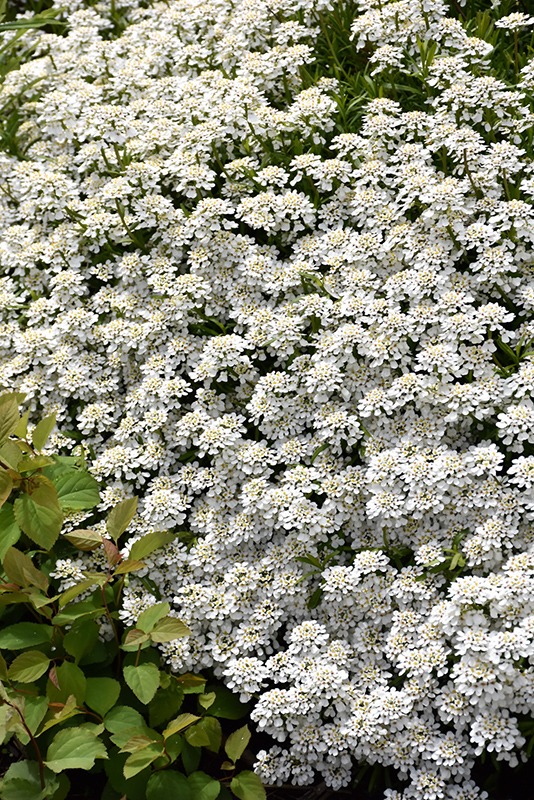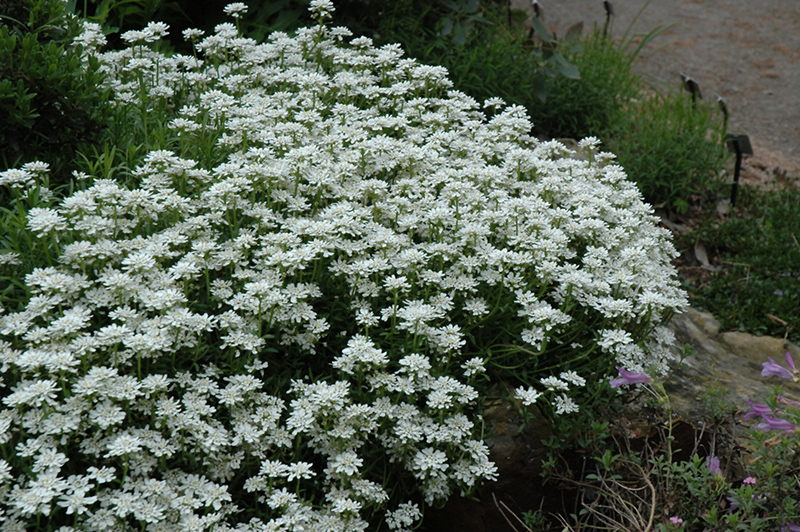Plant Search & Info
Height: 12 inches Spacing: 18 inches
Sunlight:
Hardiness Zone: 3a Description: Often treated as a perennial, this is actually a low growing shrub; features a froth of snowy white flowers in spring, tidy evergreen foliage for the rest of the year; benefits from snow cover; good for general garden use Ornamental Features Candytuft is smothered in stunning white flowers at the ends of the stems from mid to late spring. Its narrow leaves remain green in color throughout the year. Landscape Attributes Candytuft is an herbaceous evergreen perennial with a ground-hugging habit of growth. Its relatively fine texture sets it apart from other garden plants with less refined foliage. This is a relatively low maintenance plant, and should only be pruned after flowering to avoid removing any of the current season's flowers. It has no significant negative characteristics. Candytuft is recommended for the following landscape applications; Planting & Growing Candytuft will grow to be about 12 inches tall at maturity, with a spread of 24 inches. When grown in masses or used as a bedding plant, individual plants should be spaced approximately 18 inches apart. Its foliage tends to remain dense right to the ground, not requiring facer plants in front. It grows at a fast rate, and under ideal conditions can be expected to live for approximately 10 years. As an evegreen perennial, this plant will typically keep its form and foliage year-round. This plant does best in full sun to partial shade. It is very adaptable to both dry and moist growing conditions, but will not tolerate any standing water. It is not particular as to soil type or pH. It is highly tolerant of urban pollution and will even thrive in inner city environments. This species is not originally from North America.![]()
![]()
![]()
![]()
![]()
![]()
![]()
![]()
![]()
![]()
![]()



